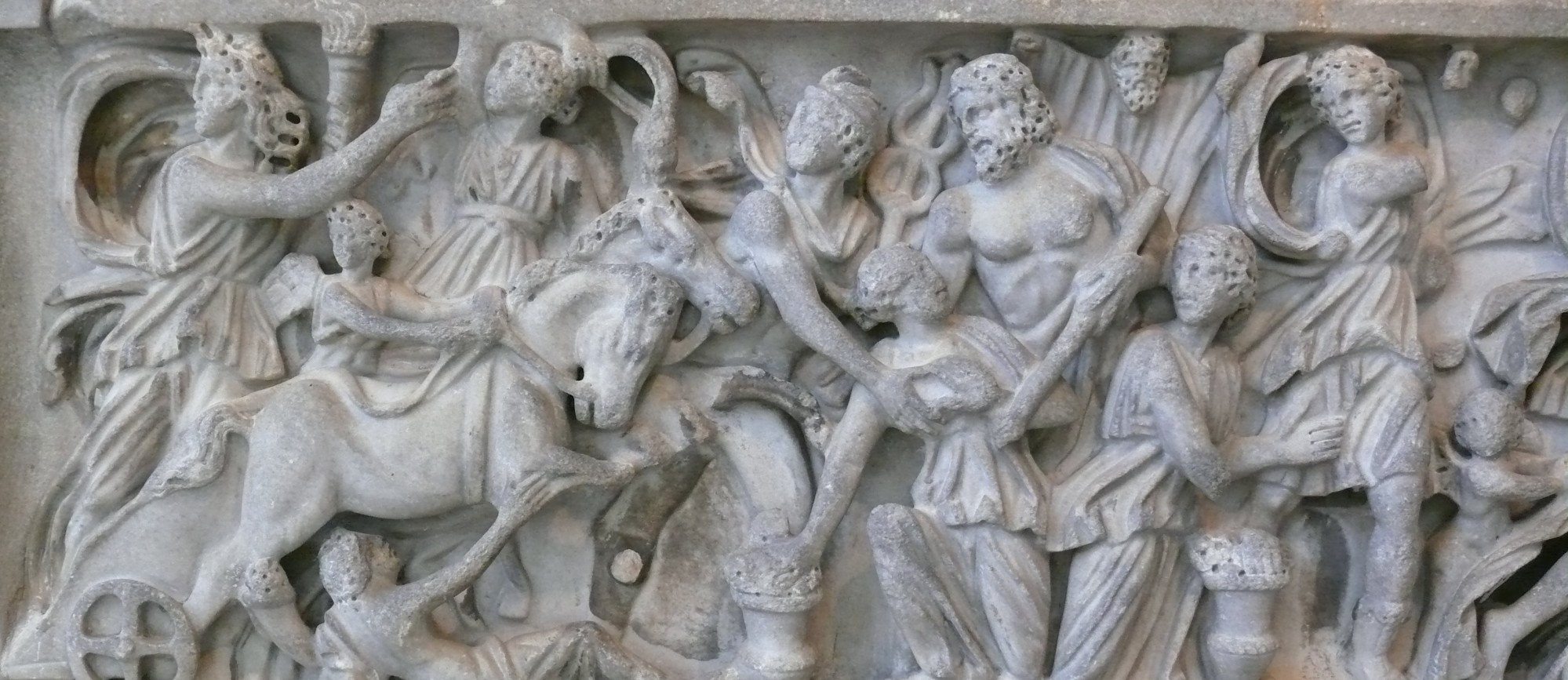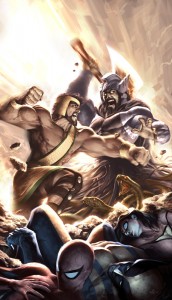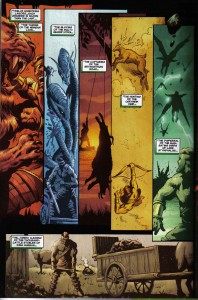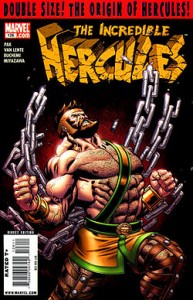Just as in ancient times, Hercules is still known in popular culture for being an outright badass. Hercules lives on today in many forms (including television, movies, etc.), but these are simply retellings of the myths we have already come to now. The media in which we see Hercules grow beyond his ancient boundaries is comic books.
Hercules first appeared in the Marvel universe in Journey into Mystery #1 in 1952. The character of Hercules was created by writer and editor Stan Lee along with artist and co-plotter Jack Kirby. The character teamed up with the Avengers on several occasions, appearing in each of the three titles. In 2008, Hercules debuted in his own series titled The Incredible Hercules. In the comics, Hercules is the son of Zeus, king of the gods of Olympus, and Alcmena, a mortal woman who lived about three thousand years ago. During this time, Zeus foresaw the evils that would plague planet Earth, and deemed it necessary to create a son powerful enough to aid mankind in their times of need.This is very similar to many of the more current superheroes (such as Iron Man and Captain America) who were also created in the aim of helping mankind. This is a little different from the classic myth in the sense that in the comic books Hercules innate purpose is to help mankind. Hercules was born after Zeus seduced Alcmena by appearing as her husband Amphitryon just as is said in the myth. Being the son of Zeus, Hercules was born with the potential for extraordinary strength, which he first displayed before he was even one year old by strangling two serpents which attacked him. As an adult, Hercules is best known for his celebrated Twelve Labors, which were performed in part to prove his worthiness for immortality to Zeus.
In Hercules’ Marvel biography, one of these Labors, the cleansing of the Aegean Stables, was actually performed by the Eternal called the Forgotten One, which isn’t mentioned in Apollydorus’ telling of the myth. In the course of these labors, Hercules provoked the wrath of three immortals who remain his enemies to this day. Whereas this is true in the myth, it is emphasized in the comics as to create Hercules token arch-enemies. By slaughtering the man-eating Stymphalian Birds, he enraged the war god Ares, to whom they were sacred. In temporarily capturing Cerberus, the three-headed hound that serves as guardian to the Olympian underworld (not to be confused with the shape-shifting giant of the same name in the Marvel universe), Hercules offended Pluto, the lord of that realm. By killing the Nemean Lion, the Hydra, and other creatures spawned by the inconceivably grotesque and powerful monster Typhoeus, Hercules gained the bitter enmity of Typhon, the immortal humanoid offspring of Typhoeus and a Titaness. The demise of Hercules in his mortal form is directly from the myth for it was the centaur Nessus who caused Hercules’ mortal demise. Nessus kidnapped Hercules’s wife Deianeira, whereupon Hercules shot him with an arrow. The dying centaur told Deianeira how to make a love charm from his allegedly enchanted blood, aware that it was now tainted with the lethal poison of the Hydra, in which Hercules had dipped his arrows. Some time after Nessus’s death, Deianeira, distraught over her husband’s latest infidelity, rubbed the supposed love charm into Hercules’ shirt. When Hercules’ donned the shirt, the poison quickly worked and caused Hercules great pain eventually leading to his death. Zeus, now believing Hercules to be worthy, made him immortal and brought him to Olympus.
Whereas this is the end of Hercules in the classical sense, in the Marvel universe, he is having more adventures wrought with violence and glory. Hercules has changed since the time of his death, and this is seen in his new appearance and arsenal. Hercules was famed in ancient Greece for his mastery of the bow and arrow, but today, because of his bitter memories of Nessus’s treachery and Deianeira’s suicide, he is never seen wielding them. Before he came to live on Olympus, Hercules’s favorite weapon was his large wooden club, but now his weapon of choice is his Golden Mace, which is not actually made of gold but was forged by the god Hephaestus from enchanted adamantine, a substance widely used in the Marvel universe. In his debut appearances, Hercules was a bitter rival of Thor (another God/Superhero), and the two battled constantly to see who would be the “God Protector” of the human race. Hercules also battles the enemies he made in the process of his Twelve Labors often, even teaming up with Thor to defeat Pluto. In the comics, Olympus is often referenced, and the enitre pantheon of Greek gods and heroes are invovled in several events.
The reason I chose this use of Greek Myhtology in today’s world is because I believe it is the most true to the original. Also it is rather interesting to see the heroes of old mingle with the heroes of today. I find comics to the home of modern myth, and I think that the evolution of heroes like Hercules and Thor are perfect examples of that. Thanks for the read and go so the new Avengers film, it’s pretty dope.




